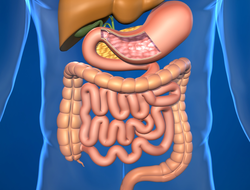Your gut microbiome, your immune system, and your health
Published: October 27, 2017
What is your gut biome and what does it do for you?
Gut biome, microbiome, microflora, or microbiota refer to the bacteria, viruses, and fungi that inhabit your gastrointestinal tract (GI).
These tiny organisms have a major role in your health by breaking down undigested food, synthesising vitamins, secreting neurotransmitters, and are key players in your immune system.
They may also be able to treat diseases such as obesity, diabetes, and inflammatory bowel diseases (IBDs).
An estimated 100 trillion bacteria, composed of several thousand different species, inhabit your gastrointestinal tract with between 35-50% in your large intestine (colon).
Species include pathogenic bacteria such as Escherichia coli (haemolytic), Clostridium perfringens, Campylobacter and Listeria organisms as well as bifodobacteria, lactobacillus organism and non pathogenic E. coli strains which are considered beneficial bacteria.
Pathogenic and beneficial bacterial strains are balanced in an optimally functioning gut.
However, disturbance of this balance may retard or promote diseases such as arthritis and IBD. This microbiome interacts with your GI tract mucosal cells forming a barrier to toxins.
A healthy gut biome is essential if you want to optimize your health so that your body will absorb the nutrients you require while inhibiting access of potentially harmful substances.
Your detoxification systems provide further protection against foreign body invasion. Your gut biome interacts with your internal detoxification systems to provide protection against invasive pathogens and promote immunological responses.
This interaction also assists in regulating your gut microbiota homeostasis.
Your gastrointestinal and liver detoxification systems
Gastrointestinal system:
This system is made up of your GI tract mucosa barrier and associated lymphoid tissue. Your gut is your body’s largest immune system component and is surrounded by 50-60% of your body’s lymphoid tissue.
Primarily your GI tract mucosa barrier, along with your gut microbiota, acts as a barrier to prevent pathogens from gaining access to your circulatory systems.
These pathogens may be associated with foods you consume, contaminated surfaces that you touch and then transfer organisms to your mouth, and bacteria and parasites that inhabit your GI tract.
Your gut-associated lymphoid tissue (GALT) generates 70% of your body’s antibodies...link to the full article to learn more.
References
1.
Refer to link in text

